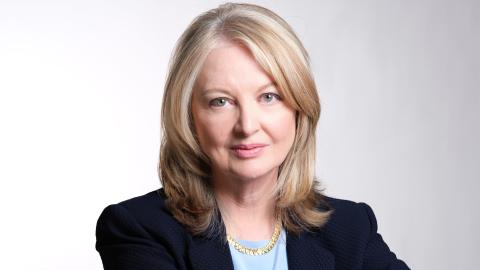In various parts of the Muslim world, religious minorities are facing a reign of terror. In the Middle East, persecution has become so terrible and widespread some experts are predicting that non-Muslims may be entirely driven from the region known for millennia as the cultural cross-roads.
Until now, the West has said little and done less about this burgeoning human rights crisis. But this could change.
On September 19, the US House of Representatives overwhelmingly (402-22) passed a bill to create at the State Department a new special envoy charged with being an advocate for vulnerable religious minorities in the Middle East and South Central Asia.
Whether it will pass in the Senate remains to be seen. Two years ago, the same bill was blocked from coming to a vote.
The Senate Democratic leadership had bowed to administration opposition.
The State Department's view, stated in a position paper, was that the special envoy position would be "unnecessary, duplicative, and likely counterproductive."
This is strange language from a Department that uses about 25 special envoys, many created by the Obama administration, itself.
Meanwhile, the situation facing the religious minorities has become ever more perilous with a shocking series of attacks that have garnered international media attention. Christian minorities of all faith communities are being targeted. So are Baha'is, Mandeans, Yizidis, Zoroastrians, Ahmadiyas, Druze, Jews, and other minorities in such countries.
In recent weeks: in Pakistan, the Taliban for the first time bombed a church packed with Sunday worshipers, killing 85; Somalia's al-Shabaab terrorists crossed into Kenya where they hunted down and shot dead dozens of non-Muslims in a shopping mall; and, in Egypt, Muslim Brotherhood supporters, scapegoating Coptic Christians, went on a rampage against churches and monasteries, destroying 40 of them.
In Iran, the entire Baha'i leadership languishes in prison, as does American Christian pastor Saeed Abidini.
And in Iraq, over the past decade, some two-thirds of the ancient Christian community, fifty percent of the Yizidis (an off-shoot of Zoroastrians) and ninety percent of the Mandeans (followers of John the Baptist) have fled after being targeted by terrorists and abandoned by their government. (The Jews number no more than eight in Iraq following similar purges sixty years ago.) Syria is aflame in sectarian conflict and defenseless minorities stand to lose the most.
Recent events may spur the Senators to take up the special envoy legislation this time, particularly if they hear from constituents.
That such an envoy is indeed needed was recently underscored in the government's anemic response to the church attacks in Egypt that ignited in a fury on August 14:
In his major speech on Egypt on August 15, President Obama devoted a mere fragment of a sentence to "condemn" the church attacks. In his UN speech this week, he did not mention the Copts.
Secretary of State Kerry said nothing.
Ambassador at Large for Religious Freedom Suzan Johnson Cook issued zero statements, not even a tweet.
At the August 14 daily press briefing, when asked about the church attacks that were then well in progress, the State Department spokesperson, without the slightest hint of conviction, asserted: "Clearly, any reports of violence we're concerned about, and when it involves a religious institutions, are concerned about that as well." Asked about it again on August 19, the spokesperson "condemned" the attacks.
Seeing that the plight of Egypt's eight million Copts had fallen through State Department cracks, the independent US Commission on International Religious Freedom was moved to write to Pres. Obama on September 12, urging him to " speak out clearly and forcefully."
But, the government's focus had shifted from Egypt to Syria and no more was publically stated about the single worst attack against the Copts in 700 years.
A special envoy, with the ear of the president, would guard against such egregious oversights. A study by the US Institute for Peace found that the use of the special envoy position has "permitted more effort, focus and attention to be placed on a given issue than would have been the case had the position not existed." That was certainly the case in another situation in which religion played a major role – a decade ago, the special envoy on Sudan was pivotal to ending that country's horrific 20 year-old North-South conflict.
As Congressman Frank Wolf (R-Va.) introduced the bill in the House, he quoted the words of the heroic anti-Nazi, German Lutheran pastor, Dietrich Bonhoeffer:
"Silence in the face of evil is itself evil. Not to speak is to speak. Not to act is to act."
Senate Majority Leader Harry Reid and Foreign Relations Chair Robert Menendez should take these words to heart as they decide whether to allow a vote on this worthy and bi-partisan bill, S.653. And so too the American people in deciding whether to contact their senators in support of it.













